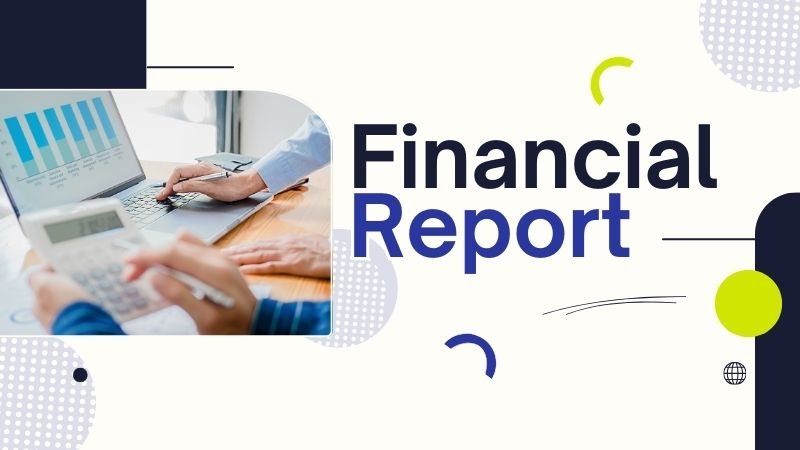As an accountant, you know how fast accounting rules change. In today’s global economy, changes in one place can affect many others. It’s important to keep up with these changes to succeed.
This guide will help you understand and follow accounting rules and learn to adapt to changes. It covers everything from new accounting principles to international financial reporting standards.
This guide is for both new and experienced accountants. It provides the skills and tools to handle changes well. You’ll learn how to use technology to check compliance and build a culture of honesty and openness.
Let’s dive into how to handle regulatory changes in accounting. This will help you make smart choices, follow the rules, and lead your organization to success in finance and reporting.
Accounting is changing fast, and professionals must keep up with new rules and standards. In the U.S., the Financial Accounting Standards Board (FASB) updates the Generally Accepted Accounting Principles (GAAP), which means accountants must always be ready to change.
In the UK, the International Financial Reporting Standards (IFRS) shape accounting, and the Financial Reporting Council oversees this. Other European countries are also changing their rules to match the European Union’s standards.
This makes things tough for accountants. They have to understand the differences between GAAP and IFRS and keep up with changes in many places.
Financial pros must keep up with new accounting rules, which change frequently. Accountants must always learn new things to report accurately and clearly.
Accounting rules are not the same everywhere. Each place has its own rules and challenges. Accountants must deal with these differences to follow the right standards.
They work hard to make accounting the same everywhere. This helps keep reports accurate and clear.
“Navigating the intricate web of globav l accounting regulations is a constant challenge for finance professionals, who must stay vigilant and adaptive to ensure compliance and accuracy in their reporting.”

Today, accountants and financial experts face big challenges with new rules. These rules change how companies do financial reporting, making it hard to maintain accuracy and transparency in financial reports. This is because of regulatory changes and compliance needs.
New rules like the International Financial Reporting Standards (IFRS) and updated Generally Accepted Accounting Principles (GAAP) have changed how companies report their money. This means they need better accounting practices and financial reporting methods.
As new rules come in, accountants and finance pros must keep up. They need to adjust their accounting practices, which helps keep their companies in line with compliance and transparency in their financial reports.
“Regulatory changes are not just a compliance burden, but an opportunity to enhance the quality and reliability of financial reporting.”
In the world of accounting, keeping up with new rules is key. One way to do this is by always learning and getting better at your job. Accountants should participate in training, webinars, and workshops to learn about new rules and best practices.
Technology helps accountants keep up with changes. They should look for chances to keep learning. This includes:
Technology is key for tracking compliance in accounting. Now, software can spot problems or issues with compliance, helping accountants keep up with new rules easily.
Learning, improving one’s job, and using technology help accountants deal with new rules, allowing them to handle changes with ease and confidence.

“The ability to adapt to change is the defining characteristic of a successful accounting professional in today’s dynamic business environment.”
In the world of accounting, having a strong accountability and transparency culture is key. This means ensuring your company follows the rules and is open about its actions. By doing this, you can handle changes in rules better and keep your business strong for the future.
It’s also vital to keep your finances honest and clear. This helps your company stay healthy and stable.
To make your company more accountable and transparent, try these steps:
“Cultivating a culture of accountability and transparency is not just a compliance requirement, but a strategic imperative for organizations seeking to thrive in today’s business landscape.”
Focusing on accountability and transparency can help your company handle rule changes well. It keeps your finances safe and sets you up for success over time. These values help you follow the rules better and make your business stronger and more respected.
Changing accounting standards needs a smart plan. It’s key to work with finance, IT, and legal teams. They must look at how new rules affect systems and controls.
Doing deep impact assessments and making solid plans helps. This way, companies can switch smoothly to new standards.
Building cross-functional teams is key for handling big changes. These teams should have people from finance, IT, and legal. They work together to see how new rules will affect the company.
Impact assessments help identify what changes are needed. This information allows companies to make a strong plan and effectively use resources.
Working together and using different skills helps companies deal with accounting changes. This ensures a smooth move to new standards.
“Effective cross-functional collaboration is the key to navigating the complexities of regulatory changes in accounting.”
As an accounting pro, it’s key to be aware of new regulatory changes. Keep up by reading industry news, attending seminars, and joining professional development programs. This will help you understand new rules and how they affect your work.
It’s tough to keep up with regulatory compliance, but it’s vital. By watching changes in rules, you can prepare for new standards, which helps your work stay accurate and trustworthy.
Use resources like articles from top accounting groups for tips on navigating regulatory changes. Also, go to webinars and events to meet other accounting professionals. You can learn from their stories.
With accounting rules always changing, continuous learning is key. Participate in training and courses to improve your knowledge of new standards and ways of doing things.
“The only way to keep up with the pace of change in the accounting industry is to embrace a lifelong learning mindset.”
By tackling regulatory changes head-on and always learning, you can help your organization do well for a long time. This keeps your stakeholders trusting you.

The accounting world is always changing, and new rules are often introduced. It’s key to use professional networks and resources to keep up. Groups like the International Network of Accountants and Auditors (INAA), the American Institute of CPAs (AICPA), and the Association of Chartered Certified Accountants (ACCA) are great for sharing ideas and learning about new rules.
Joining these groups lets you learn from others who are facing the same challenges. You can find ways to solve problems and follow the new rules. These groups also offer training and events to help you grow in your career.
Global accounting groups offer great advice on new rules. They monitor changes and share what they learn with members. By joining these groups, you get the information and tools you need to keep up with the rules.
Being active in professional networks and using industry resources helps you stay ahead. It also gives you the tools and knowledge to succeed in a changing world. These connections are key to success in accounting.
Tax laws change often, affecting how businesses handle money and follow tax rules. The Tax Cuts and Jobs Act (TCJA) changed things a lot. Now, businesses must deal with new tax rules, how they pay taxes, and what they must report.
These changes can affect many things, like cash flow and profits. Accountants and financial experts need to keep up with these changes. This helps businesses adjust and succeed in a changing world.
When tax laws change, businesses need to look closely at the effects. They must make sure they follow the rules and use smart tax strategies. Important areas affected include:
Handling tax law changes well needs a good plan. Accountants should think about these steps:
By dealing with tax law changes early, accountants can help their companies stay ahead in a changing world.
“Staying up-to-date with the latest tax legislation and regulations through ongoing professional development and industry resources is crucial for navigating the complexities of tax law changes.”
The global economy is changing fast. We need the same way of reporting money across the world. IFRS is a key tool that helps make financial reports the same everywhere. Groups like the International Accounting Standards Board (IASB) are leading the effort to make IFRS match local money rules.
Everyone wants the same money rules worldwide to make business easier. But it’s hard to get everyone to agree. Companies and accountants face many challenges. They must keep up with IFRS and know the latest changes.
Using IFRS makes your financial information clear and easy to compare, helping your company improve in the global market. Keep up with the news, work with others in your field, and use resources from accounting groups to become proficient at IFRS.